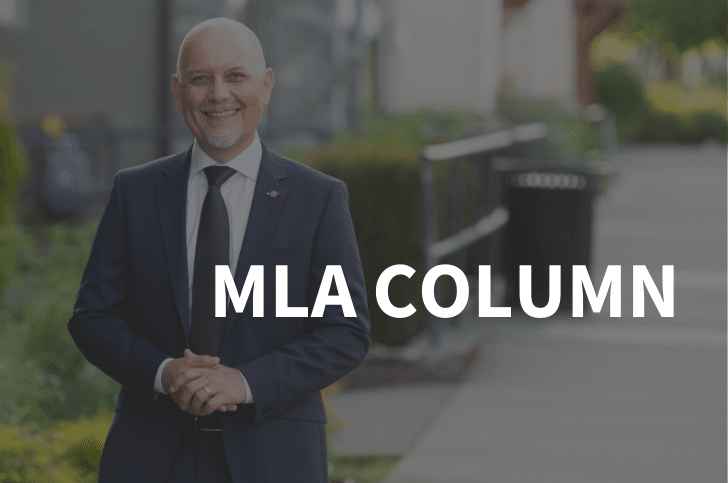Family doctor system is no longer feasible for most doctors today
An estimated 15,000 residents of Saanich North and the Islands are without primary health care.
Without a family doctor, or a primary care network, you will find yourself sitting in walk-in clinics or emergency rooms addressing each issue, not your overall health, with a doctor who doesn’t know you. That is called episodic care. It means no prevention, early intervention, or continuity of care. It means a diminished quality of life.
Currently, most family doctors run small businesses. They operate in a fee-for-service model where they bill the provincial government about $30 for each patient visit. With that, they cover their salary, costs of running an office, and their staffing.
However, in the last few years primary health care in British Columbia changed. The family doctor system that was created decades ago isn’t feasible for most doctors now, and it doesn’t encourage diversity in family doctors. I’ve heard clearly that doctors want a shift to team-based care – think doctor, nurse-practitioner, registered nurse – working together for our health and well-being.
Rather than entirely changing this model, the BC NDP’s approach is to sort of change it. Some doctors stay in the fee-for-service system while others are contracted by the local health authority to work in urgent and primary care centres (UPCCs).
It’s no wonder that fewer and fewer family doctors are running their own practices. These UPCC contracts pay more money, they give a better work-life balance, and they make it easier to provide care by working within a team. But these clinics see fewer patients, they’re open at reduced hours, and they’re not easy to get into.
An even larger threat to equitable, universal health care in B.C. is looming – corporatization, and with it, fees for better service.
Loblaws and Telus provide two different virtual care services, where you can access a virtual walk-in clinic and professionals like dietitians and registered nurses. These corporations charge the government for these services and deliver them as an extension of our primary health-care system. But they don’t stop there. As you might expect with for-profit companies, their real business is in making money from our health-care needs.
You can collect PC Optimum Points by using Loblaws’ app – and those points can be spent in-store. Telus offers LifePlus, a “premier” service at the cost of $4,000 per year for the first year, and $3,000 every year after. What do you get for your thousands of dollars? Annual screenings for early detection and intervention, advanced diagnostics, and access to team-based care.
Remember I said you can pay for better service. Well as it turns out the “better service” is the same service we used to get as part of our universal primary care from our family doctor.
It’s astonishing that the BC NDP is supporting mega-corporations taking over our primary health-care system. It’s a threat to one of the most fundamental Canadian values: equitable, freely accessible health care.
We know an unwell population has a lower quality of life and increases the burden on our taxpayer-funded health-care system.
We know regular screenings can find a small problem threatening to become a big one, but caught early, a health-care team can intervene and keep us in better health.
I have heard from my constituents that they want a consistent and reliable relationship with a health and well-being advocate, who can help answer their most personal questions, and help navigate their most challenging times.
Life-long health care is better for people and a more efficient health-care system. But British Columbians aren’t getting it – instead, they’re getting fewer family doctors and a growing divide in health between those who can pay, and those who can’t.
Adam Olsen is the MLA for Saanich North and the Islands.
Originally published in Victoria News on April 2, 2022.


Clinics like Shoreline offer a team approach, while maintaining a high degree of patient-physician consistency. Overhead and clerical resources are shared and, I imagine the work-life balance is much better than the traditional family practice. We should encourage the formation of more primary care clinics like Shoreline.
I spent 9 of the last 30 months in acute care and can assure you that the Hospitalist position is much better than the family doctor with privileges. I would hate to see that system replaced, and I know it is attractive to younger physicians with families.
We also need to look closely at the restriction on access to physicians and other levels of medical professionals. I know several bright, high quality young people who were required to wait years for admission to medical school or forced to train in another country. It seems ridiculous when we apparently have a shortage of this skilled work force. To add insult to injury, we make fully trained immigrants work as care aides, while jumping through expensive hoops to recertification to our supposedly higher standards. Let’s add some logic to all of these failed processes.